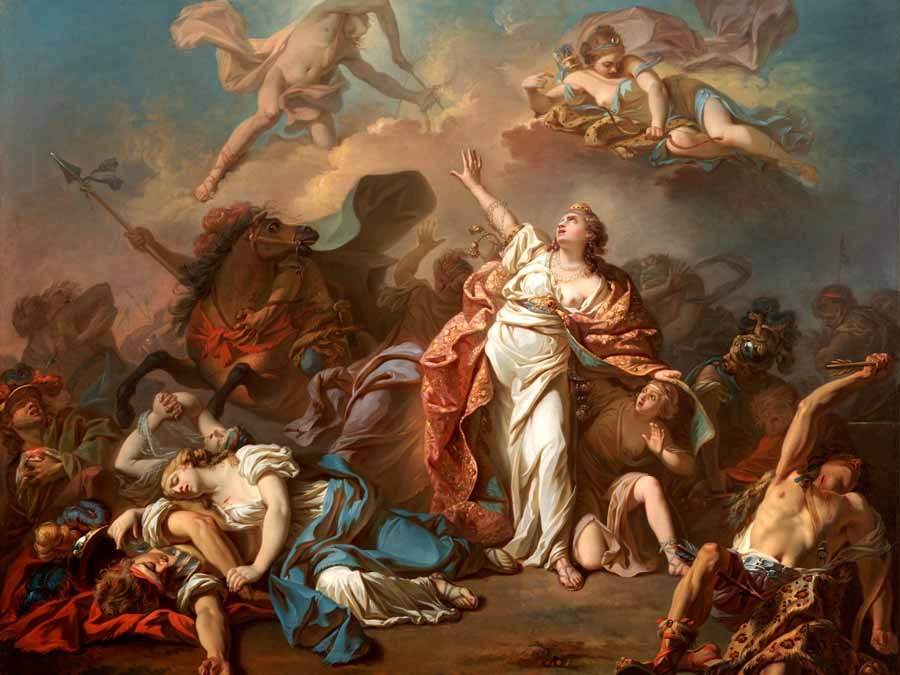Plato, Tolkien, and the Noble Lie
Proposing a Solution to Plato’s Most Controversial Idea
Few ideas are as dangerous, yet necessary, as Plato’s “Noble Lie.”
In his work The Republic, Plato describes his ideal political state. Surprisingly, he writes little about politics, and much on education, arguing that true politics is about training the soul for moral virtue.
Yet in the heart of this work, Plato makes an uncomfortable argument that divides scholars to this day — “the Noble Lie.” He asserts that all healthy civilizations need a noble lie to unite them, or else their polis is doomed to corruption, division, and decay.
Today we’ll discuss what the noble lie is, why civilizations live and die by it, and the core truth it reveals about the human soul.
Reminder:
I offer one on one coaching for men, focusing on faith, fitness, and the Great Books. More info here.
Additionally, if you’d like to support my mission of restoring Truth, Beauty, and Goodness to the West, subscribe below!
Art and Censorship
The noble lie appears in Book 3 of the Republic. In this work, Plato, through the written character of Socrates, is laying out his ideal utopian city.
For Plato, politics is fundamentally a matter of education, that the schooling of the ruling class must shape their souls to become virtuous, self-sacrificing leaders. It’s this very concern for education that leads to some of Plato’s most uncomfortable writing.
First, he infamously argues that music, poetry, and art ought to be suppressed.
Why?
Because he recognizes art as a powerful, morally neutral influence on the human soul. Great art can elevate the soul toward Goodness, but corrupt art can lead it toward depravity. For Plato, art is too potent to be left unrestrained in the open marketplace of society—it will inevitably stir immoral sensibilities that move souls toward injustice.
But we’ll soon see that Plato does have a use for some art…
What follows is the noble lie, and his proposed solution to crafting artwork that inspires a civilization to virtue.
The Myth of the Metals
After affirming that art should be censored, Plato (through Socrates) introduces a myth he would tell his citizens to ensure social order among the upper, middle, and lower classes of his ideal society.
His myth is called, The Myth of the Metals, in which he’d tell his people:
“God in fashioning those of you who are fitted to hold rule mingled gold in their generation, for which reason they are the most precious — but in the helpers silver, and iron and brass in the farmers and other craftsmen…
and if sons are born to them with an infusion of brass or iron they shall by no means give way to pity in their treatment of them, but shall assign to each the status due to his nature and thrust them out among the artisans or the farmers.
And again, if from these there is born a son with unexpected gold or silver in his composition they shall honor such and bid them go up higher, some to the office of guardian”
What exactly is going on here?
This Myth of the Metals is the noble lie in action.
The myth, which the populace is meant to take literally, teaches that all men are born from the Earth and therefore possess gold, silver, or bronze in their souls. Those with gold are rulers by nature, while those with silver and bronze are suited to the supporting and productive classes of society.
For Plato, this is a lie because it is not literally true. Yet it is noble because it directs the populace toward deeper truths about the order of reality.
In other words, the noble lie is not about fabricating a social order through falsehood, rather, it’s about crafting a compelling founding myth that imparts indirect knowledge of the logos—the Truth underlying all things—and inspires people to act virtuously.
This is perhaps Plato’s most divisive idea in history.
Some critics like Karl Popper argue that the noble lie is the basis of totalitarian thinking — that it’s merely a justification for social engineering on the basis of deception. There’s some recourse to this critique too. For instance, Huxley’s Brave New World, is a novel of a dystopian society with a secularized noble lie eerily similar to Plato’s own myth.
On the other hand, however, thinkers like Leo Strauss defend the noble lie as a necessary political reality. He pointed out that “deadly truths,” exist — a Nietzchian idea that claims there are ideas about reality that are unsettling, and morally disruptive (consider the proclamation “God is dead,” which preceded the century of genocide). Strauss seems to defend Plato as a necessary realist.
So we understand the centuries long debate:
All civilizations need a founding myth for unity, but a ruling class that builds social order on lies is morally dubious. Should we embrace the Noble Lie like Strauss, or reject it as Popper implores?
Personally, I would argue there’s a third option — a solution between these divided camps of the noble lie — and it comes from the unlikeliest of places:
Not from an acclaimed political thinker, rather from a humble English professor, with a love of pipes, prose, and hobbits…





